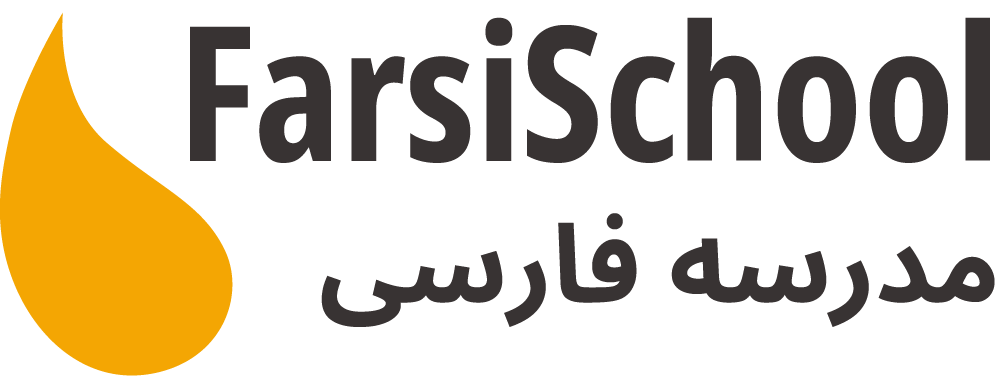Back to the wordproper noun اُدُنگو / odongo
proper noun اُدُنگو / odongo
ادنگو و اپیو در شهر با پدرشان زندگی می کردند انها برای تعطیلات لحظه شماری میکردند. نه فقط به خاطر تعطیل بودن مدرسه، بلکه به خاطر اینکه انها به ملاقات مادربزرگشان می رفتند. او در یک روستای ماهیگیری نزدیک یک دریاچه زندگی میکرد.
odongu va âpiow dar šahr bâ pedarešân zendegi mi kardand ânhâ barâye ta'tilat lahze šomâri mikardand. na faqat be xâter-e ta'til budan-e madrese، balke be xâter-e inke ânhâ be molâqât-e mâdarbozorgešân mi raftand. u dar yek rustâ-ye mâhigiri nazdik-e yek dariyâče zendegi mikard.
Odongo and Apiyo lived in the city with their father. They looked forward to the holidays. Not just because school was closed, but because they went to visit their grandmother. She lived in a fishing village near a large lake.
ادنگو و اپیو به خاطر اینکه دوباره زمان ملاقات مادربزرگ رسیده بود هیجان زده بودند. از شب قبل کیف هایشان را بستند و آماده ی سفر طولانی به روستای مادربزرگ شدند. انها نمی توانستند بخوابند و تمام شب درباره تعطیلات صحبت می کردند.
odongu va âpiow be xâter-e inke dobâre zamân-e molâqât-e mâdarbozorg reside bud haiejân zade budand. az šab-e qabl kif hâyešân râ bastand va âmâde -e safar-e tulâni be rustâ-ye mâdarbozorg šodand. ânhâ nemi tavânestand bexâband va tamâm-e šab darbâre-ye ta'tilat sohbat mi kardand.
Odongo and Apiyo were excited because it was time to visit their grandmother again. The night before, they packed their bags and got ready for the long journey to her village. They could not sleep and talked the whole night about the holiday.
پدر ادنگو و اپیو را وقتی که به روستا رسیدند صدا زد. انها نیارکانیادا، مادربزرگشان را در حالیکه زیر درخت روی حصیر در حال استراحت بود، دیدند. نیارکانیادا در زبان لو، به معنای دختر مردم کانیادا است. او یک زن قوی و زیبا بود.
pedar odongu va âpiow râ vaqti ke be rustâ residand sedâ zad. ânhâ niyârkâniyâdâ، mâdarbozorgešân râ dar hâli ke zir-e deraxt ru-ye hasir dar hâl-e esterâhat bud، didand. niyârkâniyâdâ dar zabân-e lu، be ma'nâ-ye doxtar-e mardom-e kâniyâdâ ast. u yek zan-e qavi va zibâ bud.
Father woke up Odongo and Apiyo as they arrived in the village. They found Nyar-Kanyada, their grandmother, resting on a mat under a tree. Nyar-Kanyada in Luo, means 'daughter of the people of Kanyada'. She was a strong and beautiful woman.
نیارکانیادا با خوشامد گویی انها را به خانه دعوت کرد و با خوشحالی شروع به رقصیدن و اواز خواندن دور انها کرد. نوه هایش هیجان زده بودند که هدیه هایی را که از شهر اورده بودند به او بدهند. ادنگو گفت اول کادو مرا باز کن. اپیو گفت نه اول کادوی من.
niyârkâniyâdâ bâ xošâmad guiy ânhâ râ be xâne da'vat kard va bâ xošhâli šoru' be raqsidan va âvâz xândan dowr-e ânhâ kard. nave hâyeš haiejân zade budand ke hediye hâyi râ ke az šahr âvorde budand be u bedehand. odongu goft aval kâdu-ye marâ bâz kon. âpiow goft na aval kâdu-ye man.
Nyar-Kanyada welcomed them into the house and danced around the room singing with joy. Her grandchildren were excited to give her the presents they brought from the city. "First open my gift," said Odongo. "No, my gift first!" said Apiyo.
سپس ادنگو و اپیو به بیرون رفتند. انها پروانه ها و پرندگان را دنبال کردند.
sepas odongu va âpiow be birun raftand. ânhâ parvâne hâ va parandegân râ donbâl kardand.
Then Odongo and Apiyo went outside. They chased butterflies and birds.
ادنگو و اپیو به مادربزرگ در انجام کارهای خانه کمک کردند. انها اب و هیزم اوردند. انها تخم مرغ ها را از زیر پای مرغ ها جمع کردند و از باغ سبزی چیدند.
odongu va âpiow be mâdarbozorg dar anjâm-e kârhâ-ye xâne komak kardand. ânhâ âb va hizom âvordand. ânhâ toxme morğ hâ râ az zir-e pâ-ye morğ hâ jam' kardand va az bâğ sabzi čidand.
Odongo and Apiyo helped their grandmother with household chores. They fetched water and firewood. They collected eggs from the chickens and picked greens from the garden.
یک روز ادنگو گاوهای مادربزرگش را برای چریدن بیرون برد. انها به طرف مزرعه ی همسایه فرار کردند. کشاورز همسایه از ادنگو عصبانی شد و تهدید کرد که گاوها را برای خودش نگه میدارد چون گاوها محصولات کشاورزی او را خورده بودند. بعد از ان روز ادنگو حواسش را جمع کرد که گاوها دوباره دردسر درست نکنند.
yek ruz odongu gâvhâ-ye mâdarbozorgeš râ barâye čaridan birun bord. ânhâ be taraf-e mazra'e -e hamsâye farâr kardand. kešâvarz-e hamsâye az odongu asabâni šod va tahdid kard ke gâvhâ râ barâye xodeš negah midârad čon gâvhâ mahsulat-e kešâvarzi-ye u râ xorde budand. ba'd az ân ruz odongu havâseš râ jam' kard ke gâvhâ dobâre dardesar dorost nakonand.
One morning, Odongo took his grandmother's cows to graze. They ran onto a neighbour's farm. The farmer was angry with Odongo. He threatened to keep the cows for eating his crops. After that day, the boy made sure that the cows did not get into trouble again.
یک روز ادنگو گاوهای مادربزرگش را برای چریدن بیرون برد. انها به طرف مزرعه ی همسایه فرار کردند. کشاورز همسایه از ادنگو عصبانی شد و تهدید کرد که گاوها را برای خودش نگه میدارد چون گاوها محصولات کشاورزی او را خورده بودند. بعد از ان روز ادنگو حواسش را جمع کرد که گاوها دوباره دردسر درست نکنند.
yek ruz odongu gâvhâ-ye mâdarbozorgeš râ barâye čaridan birun bord. ânhâ be taraf-e mazra'e -e hamsâye farâr kardand. kešâvarz-e hamsâye az odongu asabâni šod va tahdid kard ke gâvhâ râ barâye xodeš negah midârad čon gâvhâ mahsulat-e kešâvarzi-ye u râ xorde budand. ba'd az ân ruz odongu havâseš râ jam' kard ke gâvhâ dobâre dardesar dorost nakonand.
One morning, Odongo took his grandmother's cows to graze. They ran onto a neighbour's farm. The farmer was angry with Odongo. He threatened to keep the cows for eating his crops. After that day, the boy made sure that the cows did not get into trouble again.
یک روز ادنگو گاوهای مادربزرگش را برای چریدن بیرون برد. انها به طرف مزرعه ی همسایه فرار کردند. کشاورز همسایه از ادنگو عصبانی شد و تهدید کرد که گاوها را برای خودش نگه میدارد چون گاوها محصولات کشاورزی او را خورده بودند. بعد از ان روز ادنگو حواسش را جمع کرد که گاوها دوباره دردسر درست نکنند.
yek ruz odongu gâvhâ-ye mâdarbozorgeš râ barâye čaridan birun bord. ânhâ be taraf-e mazra'e -e hamsâye farâr kardand. kešâvarz-e hamsâye az odongu asabâni šod va tahdid kard ke gâvhâ râ barâye xodeš negah midârad čon gâvhâ mahsulat-e kešâvarzi-ye u râ xorde budand. ba'd az ân ruz odongu havâseš râ jam' kard ke gâvhâ dobâre dardesar dorost nakonand.
One morning, Odongo took his grandmother's cows to graze. They ran onto a neighbour's farm. The farmer was angry with Odongo. He threatened to keep the cows for eating his crops. After that day, the boy made sure that the cows did not get into trouble again.
یک روز دیگر بچه ها با مادر بزرگ به بازار رفتند. او در انجا یک غرفه داشت و سبزیجات، شکر و صابون می فروخت. اپیو دوست داشت که به مردم قیمت اجناس را بگوید. ادنگو چیزهایی که مشتری ها خریده بودند را در کیسه می گذاشت.
yek ruz-e digar bačče hâ bâ mâdar bozorg be bâzâr raftand. u dar ânjâ yek ğorfe dâšt va sabzijât، šekar va sâbun mi foruxt. âpiow dust dâšt ke be mardom qeymat-e ajnâs râ beguyad. odongu čizhâyi ke moštari hâ xaride budand râ dar kise mi gozâšt.
On another day, the children went to the marketplace with Nyar-Kanyada. She had a stall selling vegetables, sugar and soap. Apiyo liked to tell customers the price of items. Odongo would pack the items that customers bought.
 Dictionary
Dictionary